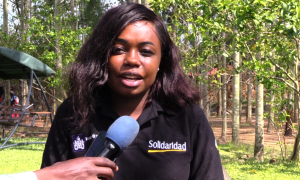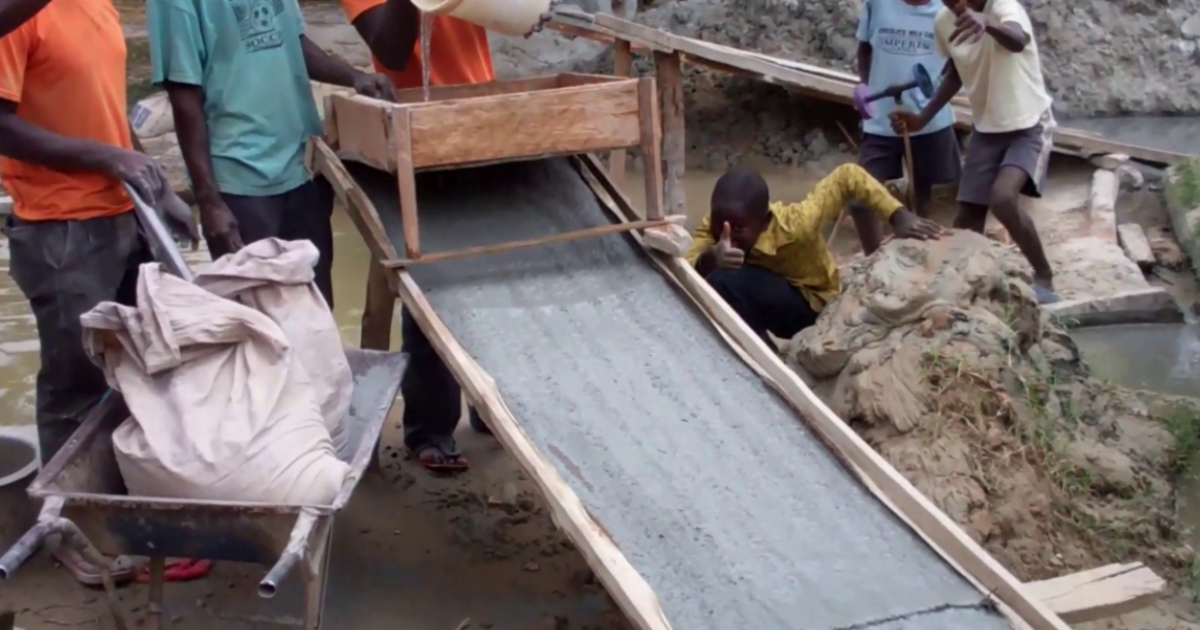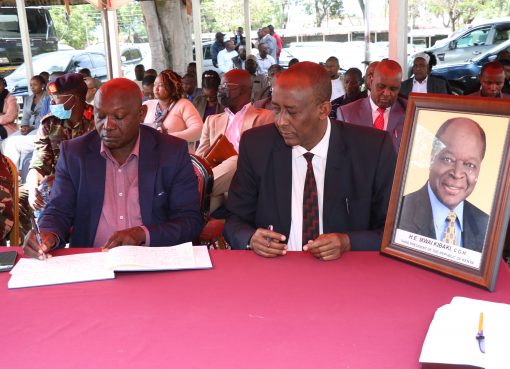In recent months, the government, through the Ministry of Mining, has been leading the effort to establish Artisanal Mining Committees (AMC) in mining counties to assist in license issuance to formalise the recognition of Artisanal and Small-Scale miners in the country.
As the challenges of licenses and permits are being addressed, the artisanal and small-scale miners will be battling to impress upon financial entities to ease on them the grave challenge of financing their activities on the ground.

According to Lawrence Oduor, a small-scale miner from Rongo Sub County, the necessary mining equipment is quite expensive and most of the time out of reach by a majority of artisanal and small-scale miners due to financial constraints.
Oduor says that many times they have attempted to secure funding from the banks without much success. However, he is hopeful that the gazettement of the Artisanal Mining Committees mandated with issuing licenses to miners will bring hope of unlocking financial assistance and access from the financial institutions near them.
He disclosed that most of the challenges that have been affecting the artisanal and small-scale miners, like lack of operating licenses and formulation of cooperatives and Sacco’s, have already been addressed, thanks to both the national and county governments.
“Our biggest hurdle now is unlocking the financial assistance. In years, banks have not recognised mining as a business venture, but thanks to license acquisition, we will be able to have a rightful document to seek loans from these financial institutions,” explained Oduor.
Alex Ocholo, another small-scale miner from Rongo, stresses that for miners to get meaningful income from mining activities, financial institutions should be willing to listen to their grievances and assist the mining community to realise their dreams.
Ocholo says that the persistent use of old technologies and traditional methods of mining has continued to bring more economic hues to the mining communities.
“We need banks to fully recognise the mining sector as a genuine economic venture now that the majority of the Artisanal and small-scale miners have started to acquire mining licenses,” lamented Ocholo.
However, artisanal and small-scale miners may soon have smiles on their faces if the partnership among international groups like Soliridad and Impact Facility continues to work with the mining sectors in the country.
The two firms, Soliridad International Group and Impact Facility, have been holding mining forums that have been able to bring together mining partners, including the cooperative and mining departments and financial institutions in Migori.
According to Rita Njeri, the Mining Project Implementer at the Soliridad International group, their partnership with the Impact Facility through a programme dubbed “project access’ funded by the European Partnership for Responsible Minerals (EPRM) aims to formalise all grievances of the artisanal and small-scale miners in mining operating counties with a view to financing their activities.
Solidaridad is a global non-profit organisation based in Nairobi and focusing on mining countries in East and Central Africa with a mandate to empower and formalise artisanal and small-scale miners in indigenous communities.
Njeri explains that the organisation also aims to empower mining communities to improve their production in line with issues of environmental, social, and governance (ESG).
During a press interview recently, she highlighted that the Solidaridad’s purpose is to ensure artisanal and small-scale miners in Indigenous communities benefit from their mining ventures to earn a steady and decent income, have adequate safety measures, as well as conserve their operational mining environments specifically in the four mining counties of Migori, Kakamega, Narok, and Turkana.
Already, Solidaridad is implementing three projects: the sustainability Gold project, the Pathway to Prosperity programme, and Project Access, which is led by the EPRM, with the aim of training miners to improve their health and safety standards at mining sites and attract investors and funding in the mining sector.
Impact Facility Mining Expert Cyrus Njonde disclosed that their main role in the mining sector, especially for the artisanal and small-scale miners, is to provide technical support through equipment leasing and root for the market.
Njonde emphasised that they have been inviting financial institutions to the miner’s forum to expose them to some of the strategies they can adopt in issuing loans as well as how miners can be able to repay their loans.
The Impact Facility has also been empowering miners to improve productivity and community prosperity through more efficient equipment, better management practices, and greater regard for worker health and safety.
Impact Facility has enabled small-scale miners like Lawrence Oduor to acquire mining equipment like compressors, generators, and mud pumps through leasing to improve his mining activities.
Additionally, the Solidaridad group, together with Impact Facility, has been addressing other challenges like lack of gender inclusion in the mining sector, lack of access to geological data, which in turn affects the sustainability of mining processes, and lack of acquisition of licensing, which prevents miners from operating legally due to the bureaucracy in the system.
They have also been involved in addressing challenges of health and safety in the sector that have led to loss of lives in the mining sector and lack of fair value chain distribution in marketing.
By Beryl Akinyi and George Agimba



